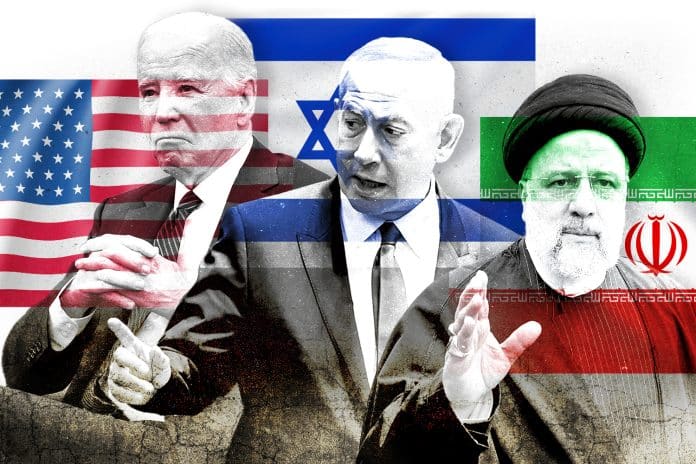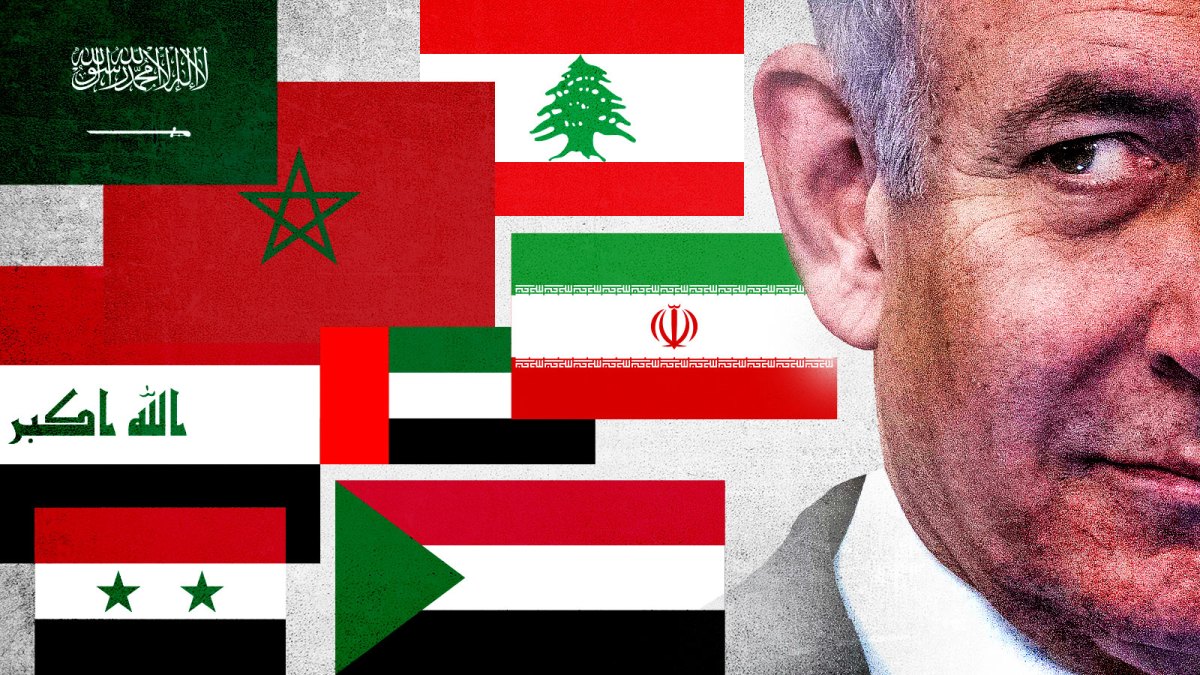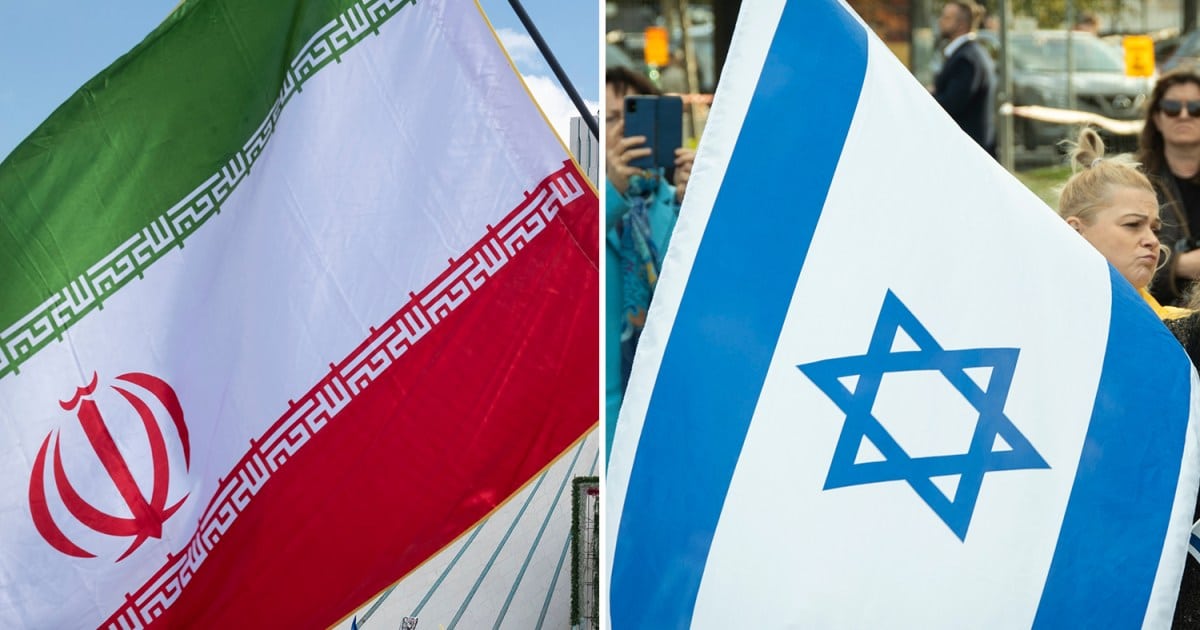Does the freedom exist for Arab countries in Iran Israel war? Have alliances, regional dynamics, and strategic interests made it difficult for them to take a stance.
As Iran and Israel edge closer to war, many Arab nations find themselves caught in the middle of this unprecedented conflict.
Syria, Iraq, and Jordan, situated in the neighborhood, are awkwardly positioned between Iran and Israel.
To Israel’s north lies Lebanon, while not too far away are Kuwait, Bahrain, Qatar, Saudi Arabia, the UAE, Yemen, Sudan, Morocco, and Egypt. Among these countries, some host Iran-backed armed groups, such as Iraq, Syria, Yemen, and Lebanon, forming what is known as Iran’s axis of resistance. Additionally, there are countries that have established bilateral ties with Israel through normalization accords, making Israel the sole Jewish state in the Arab world, where Muslims are a minority.
In 1979, Egypt established diplomatic relations with Israel, followed by Jordan in 1994. Furthermore, the USA brokered agreements between the UAE, Bahrain, Sudan, and Israel.
The looming question now is whether these Arab nations will be compelled to pick sides in the Iran-Israel war? Will they find themselves trapped in this war? This uncertainty has unsettled the Arab world, prompting preemptive disclaimers aimed at avoiding entanglement in the Iran Israel war.
Arab Nations and the Iran-Israel War
Jordan’s stance in Iran Israel War
King Abdullah II of Jordan emphasized the need for his country to refrain from becoming “the theatre of the regional war” during a speech in the governorate of Mafraq. He reiterated Jordan’s commitment to preserving its security and sovereignty above everything else. Despite intercepting Iranian missiles and drones on behalf of Israel on Sunday, King Abdullah II clarified that Jordan’s actions were intended to safeguard its own sovereignty, not to defend Israel.
Saudi Arabia’s stance in Iran Israel war
Saudi Arabia has been distancing itself from the weekend’s attacks. Despite initial claims in Israeli media suggesting that Saudi Arabia assisted in defending Israel, including intercepting Iranian missiles. However, the sources within the kingdom have now clarified to Arab media that Saudi Arabia did not engage in shooting down Iranian missiles and drones.
Iraq’s stance in Iran Israel War
Iraq, on the other hand, finds itself in a unique position, with Iran-backed Islamic resistance groups operating within its borders. Following Sunday’s attack, there was speculation that some projectiles could have been fired from Iraq due to its proximity to Israel. However, Iraqi Prime Minister Mohammed Shia’ Al Sudani clarified that his country has not received any reports or indications of missiles and drones being launched from the Iraqi territory. Al Sudani emphasized, “Our position is clear, and we will not permit Iraq to be dragged into the conflict arena.”
The Iraqi and Jordanian statements indeed exhibit a shared inclination among Arab countries to avoid getting drawn into a broader conflict. However, the question remains: do they truly have a choice, or are these nations handcuffed by America?

Are Arab nations in Iran Israel war handcuffed by the United States?
While Iraq hosts various pro-Iranian militias, it’s also home to multiple American military bases, with around 2,500 American troops stationed there. The stance of the United States in the Israel-Iran conflict is unmistakable, with President Joe Biden pledging unwavering support for Israel. This commitment implies that the US will stand by Israel, providing defense regardless of the circumstances.
Amidst these considerations, the question arises: will Iraq be compelled to align itself accordingly? Will it find itself constrained, lacking autonomy in its decisions? The presence of American military bases often handcuffs the countries’.
Other Arab nations hosting American bases include Jordan, where King Abdullah II aims to steer clear of the conflict. However, will Washington grant Jordan the choice when the time comes, especially if American bases in Jordan are targeted?
Qatar houses America’s largest base in West Asia, Al Udeid Air Base, established in 1996.
Bahrain handcuffed
Bahrain also hosts a significant US naval base, Naval Support Activity Bahrain, serving as the headquarters of the Naval Forces Central Command and the US 5th Fleet. Can Bahrain maintain its neutrality if American troops stationed there are involved in defending Israel?
American presence in the Arab world
American presence extends to Kuwait, with Camp Arifjan, as well as the Ali Al Salem Air Base. The UAE’s Al Dhafra Air Base hosts American troops and operates as a joint training center with the UAE.
Additionally, the US maintains an outpost in Syria, and there are American troops stationed in Oman and Saudi Arabia.
Before the conflict escalates, there were approximately 40 US personnel in West Asia. However, since the Hamas attack on October 7, this number has likely increased. In the event of a war between Israel and Iran, American troops in the region would inevitably become involved, leading to heightened activity at US bases.
Will those fighting against Israel, and by extension America, refrain from targeting or attacking these bases? Will the forces not attack or bomb these bases? Will the war spare the countries housing American military bases?
American bases already targeted
Since the outbreak of the war in Gaza, American bases in Syria and Iraq have been targeted. An American secret base in Jordan was recently attacked by a drone, resulting in the deaths of three American commandos. Tower 22, a base that was relatively unknown before the drone attack, was also targeted.
These bases are expected to have high levels of security, including air defense systems. However, these measures have not been able to prevent the attacks on them.
Since October 7, US troops in West Asia have faced over 160 attacks. Initially, these attacks were carried out by Iranian proxies, but the situation has evolved. With the changing dynamics, there is no assurance that US bases will remain immune to attacks in the event of a broader conflict. This uncertainty puts the host countries in a precarious situation.
Conclusion
Qatar, for instance, houses a political office of Hamas and accommodates several senior leaders of Iran-backed groups. Additionally, Qatar hosts the office of Hamas’s supreme leader, Ismael Haniyeh. Iraq is considered an ally of Iran and the US, which is an ally of Israel. Syria also has both Iran-backed troops and US troops present, albeit at different levels of influence.
Then what happens if a war breaks out between Iran and Israel? Will these Arab countries really be able to stay out?















